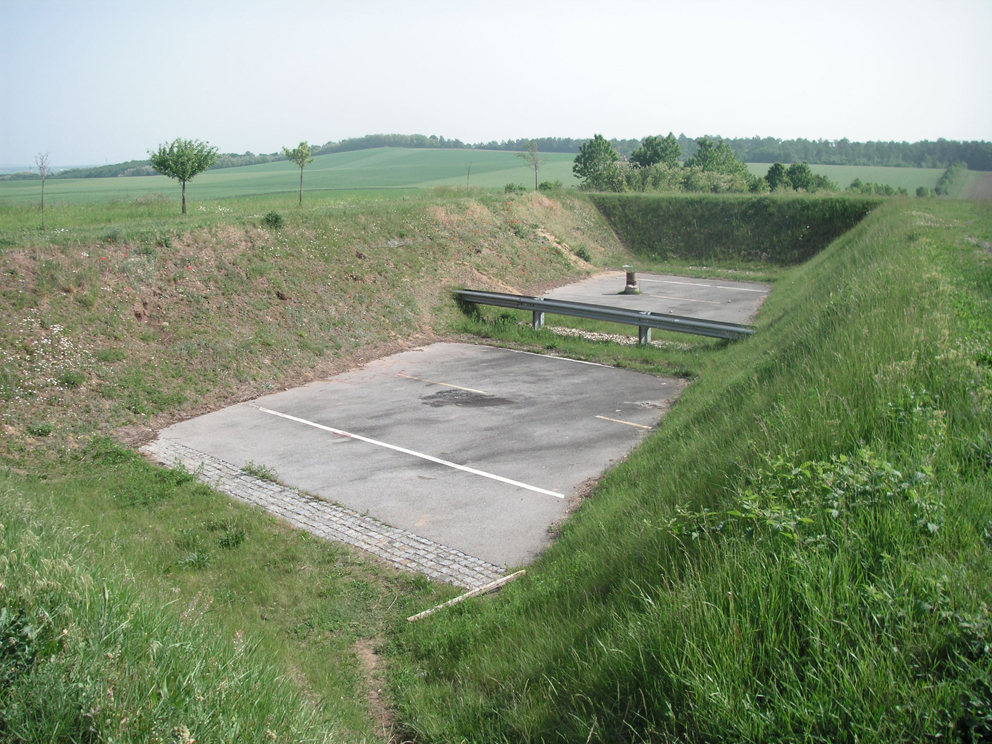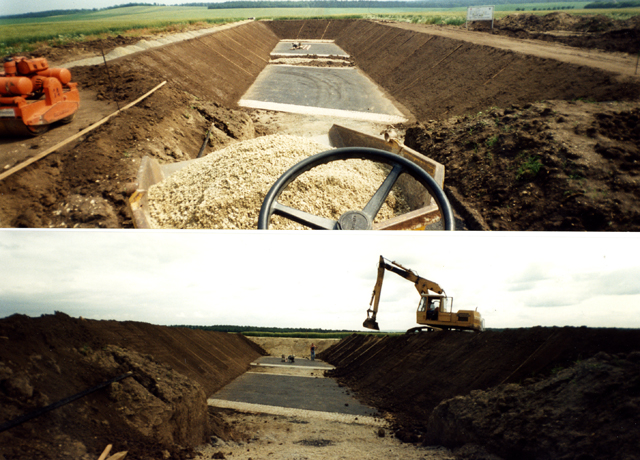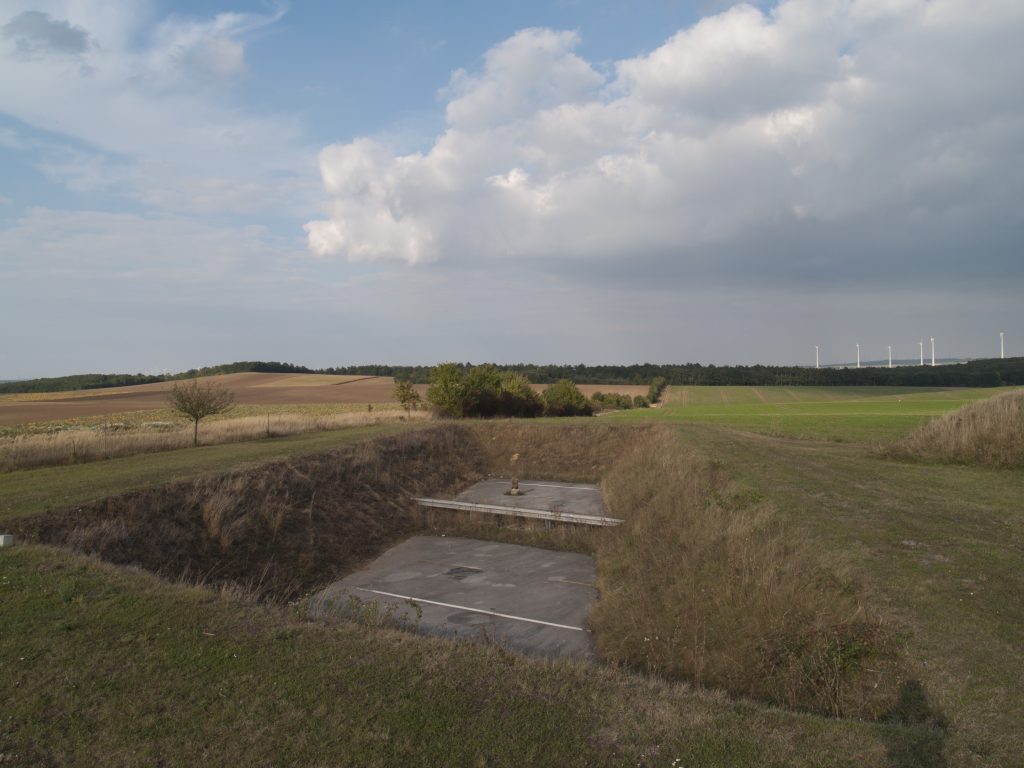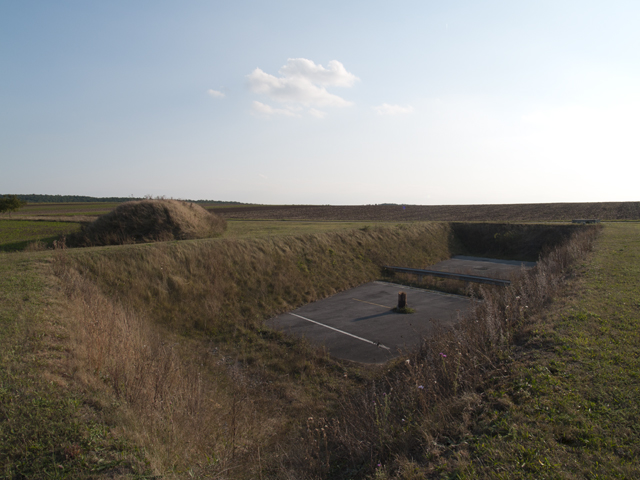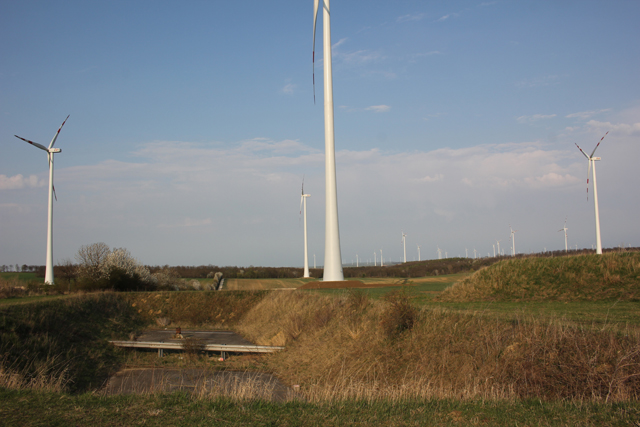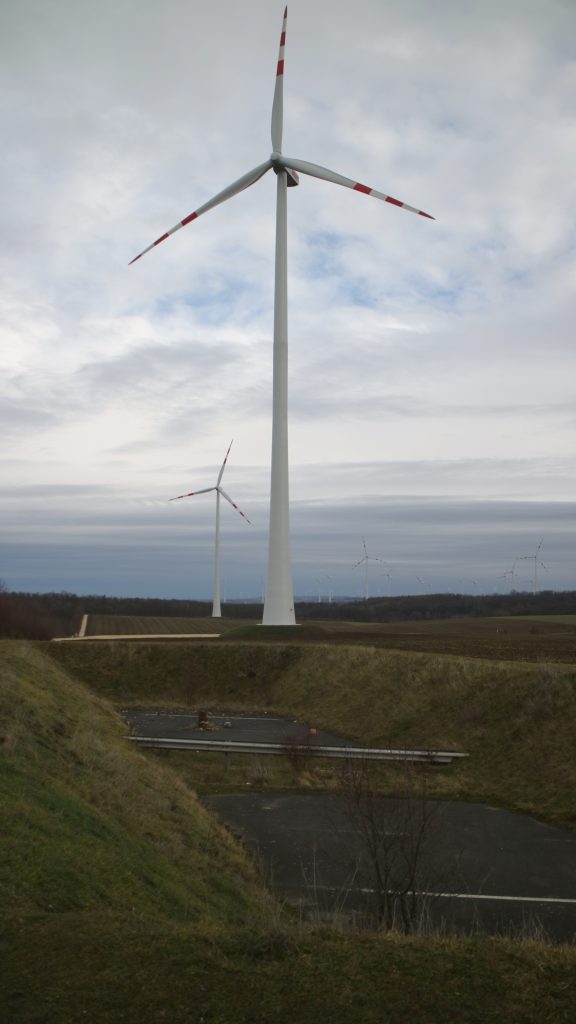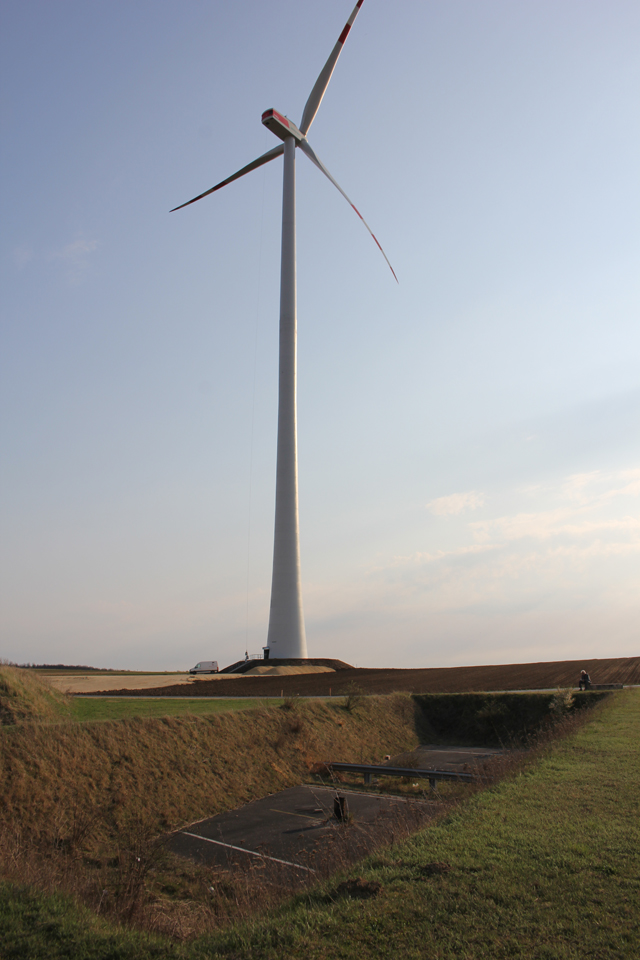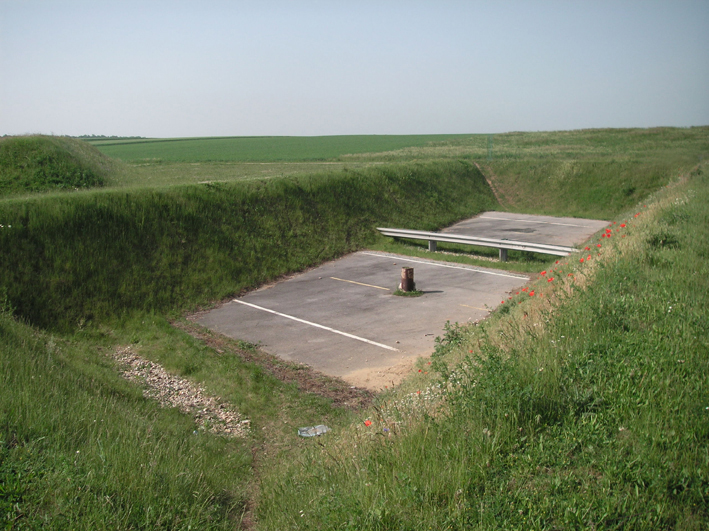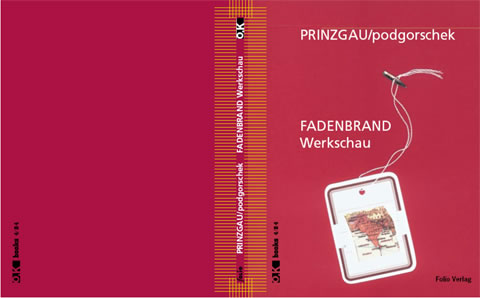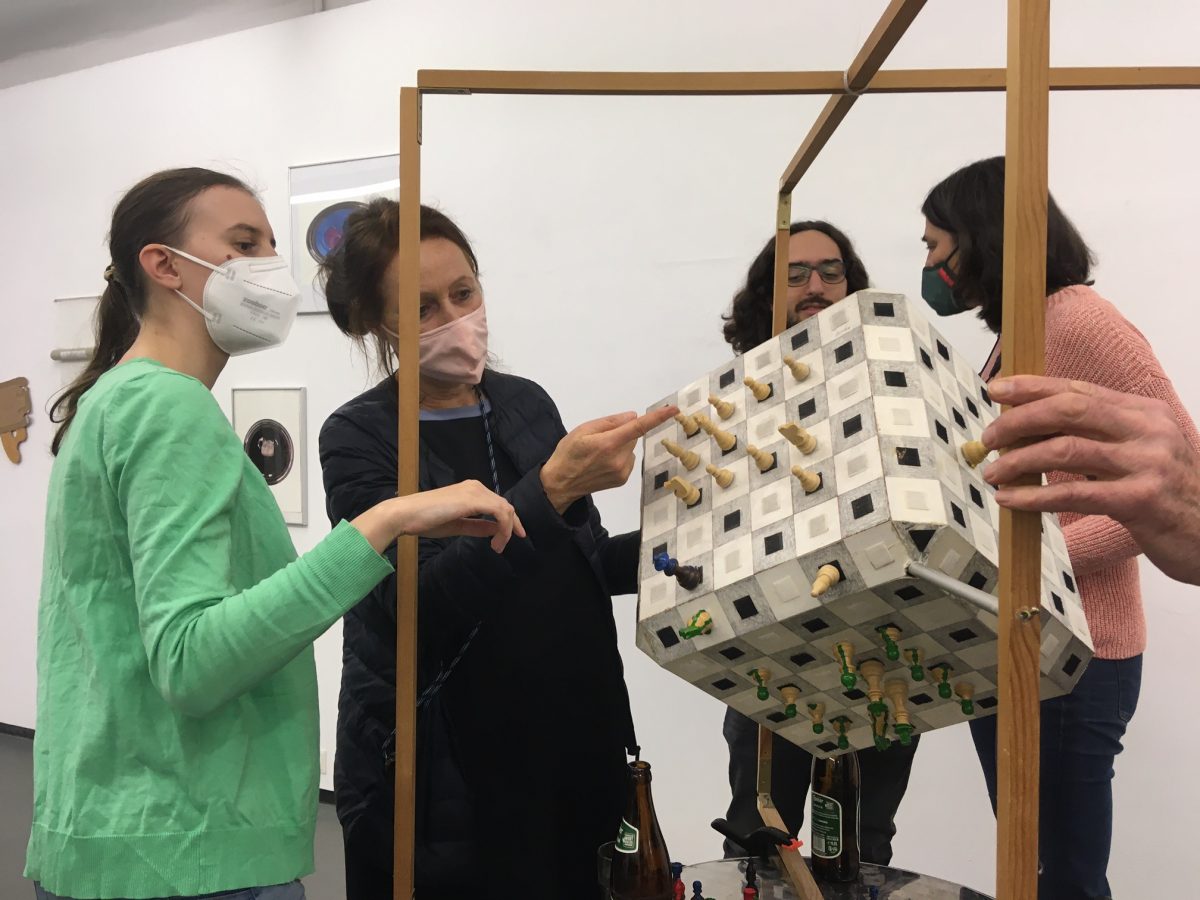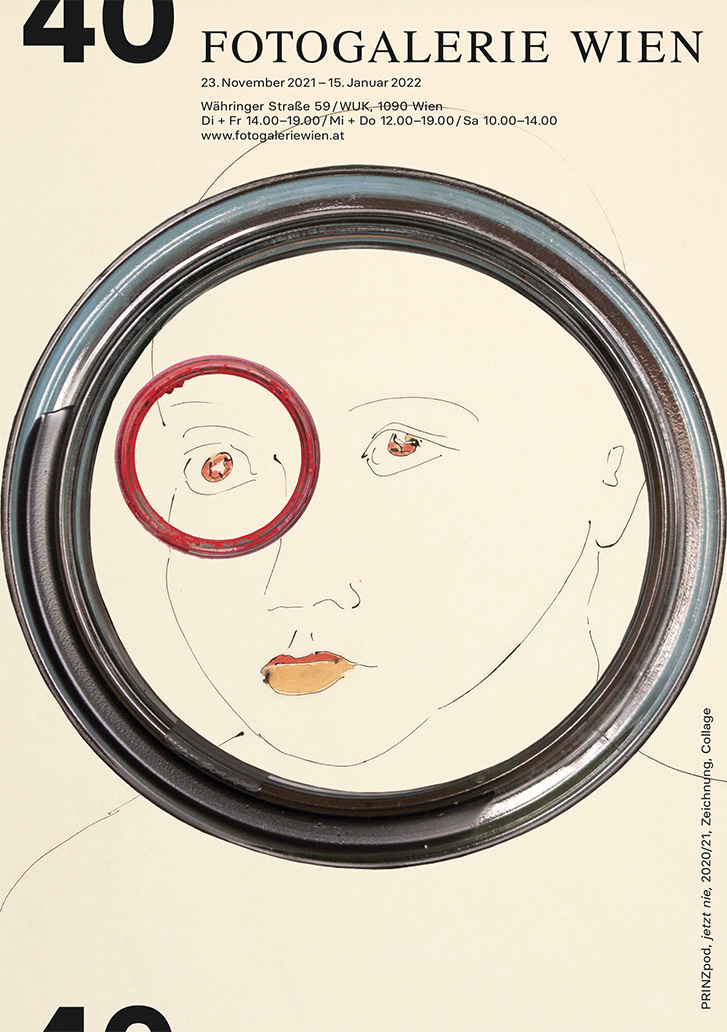Title : Entdeckung der Korridore/Discovery of Corridors Autobahn
Location : Paasdorf near Mistelbach, Lower Austria
Client : Province of Lower Austria (Competition) Completed 1995
Dimensions : 3 meters deep, 6 meters long, 35 meter s wide
Material : asphalt, metal, paint, stone
1 industrial archaeological find : foundations of a former oil bore hole from the 1960s
Um viel leerem Raum und ein Mehr oder Weniger an Skulptur geht es auch bei der „Entdeckung der Korridore“ in Paasdorf/Mistelbach. Die „Autobahn“ schafft wenig Probleme in ihrer Objekthaftigkeit, nicht nur weil sie unter der Erde liegt, sondern vor allem deshalb, weil das eigentliche Objekt, das Auto, „das Königsobjekt“ des programmierten Alltagslebens in der Konsumgesellschaft“ (Thomas F. McDonough) abwesend ist. Sie bietet uns ein Weniger an Objekt, das Denkmal, Ruine oder Ausgrabung sein kann und ein Mehr an Erfahrungsmöglichkeiten, weil Öffentlichkeit hier wesentlich zu einer kollektiven Erfahrung von Vergangenheit, Gegenwart und Zukunft wird und Wege, Bahnen anbietet, nicht sichtbar, aber an den Titel gekoppelt der ein Mehr an Straßen verspricht, als er das Weniger zeigt. Und dieses Weniger, das man sieht, ist außerdem an keine traditionelle Blick- und Standpunktsituation eines aufrecht stehenden Betrachters gebunden, sondern erschließt sich aus anderer Perspektiven, wie der des Kartographen, der mehr als perspektivische Bilder erfaßt.
The „Discovery of Corridors“ in Paasdorf/Mistelbach also has to do so with a lot of vacant space and more or less sculpture. The „highway“ lies below the ground but rather for the very reason that the actual object, the car, “ the ‚regal object‘ of programmed everyday life in consumer society“ (Thomas F. McDonough) is absent. It offers us less object, which can be a monument, a ruin or an excavation and more potential experience, since the public dimension here becomes more a collective experience of the past, the present and the future. Paths and trajectories are offered, not visible but linked to the title, promising more streets and showing less. And this something less that one sees is also not bound to any tradtional gaze or positional of an upright standing viewer. Rather, it becomes visible through other perspectives, like of a cartographer who sees more than perspectival imagery.
Susanne Neuburger

